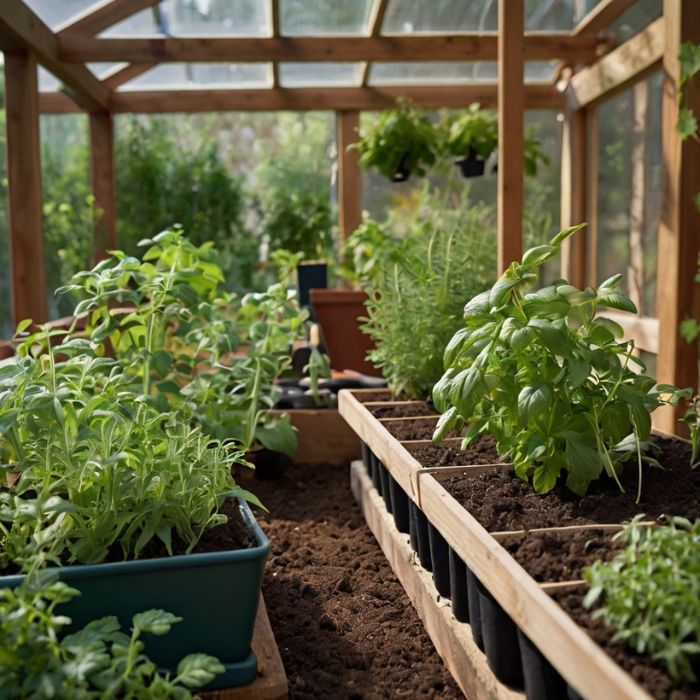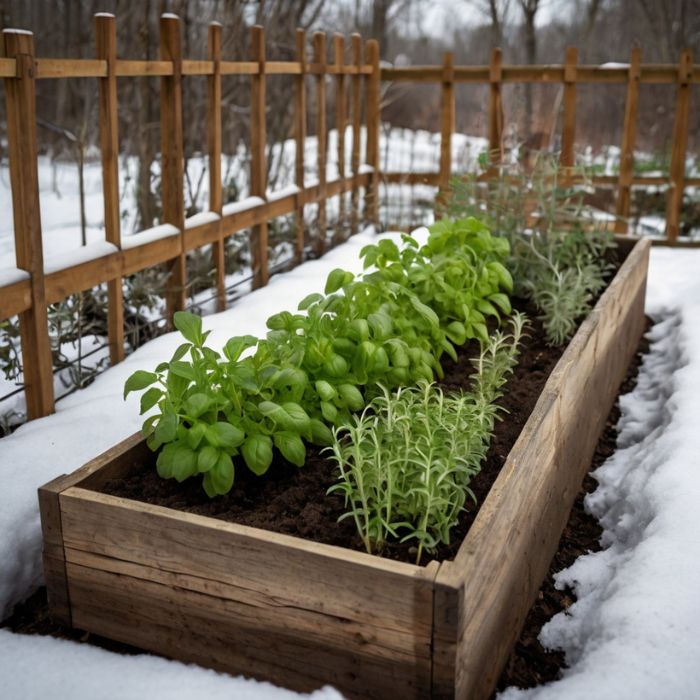Your Herb Garden Needs Special Care in Winter—These Expert Tips Will Keep It Healthy
A thriving herb garden is a joy for any gardener, providing fresh flavors for the kitchen and medicinal benefits year-round. However, as temperatures drop and Winter care for herb garden require special care to remain healthy and productive. Below, we’ve gathered expert tips to help you protect, nurture, and manage your herb garden during the winter months.
Understanding Winter’s Impact on Herb Gardens
Winter presents unique challenges for herb plants, as the cold weather can inhibit growth and increase susceptibility to frost damage. While some herbs are hardy and can withstand freezing temperatures, many popular varieties—such as basil, thyme, and rosemary—need extra protection to survive. Knowing which herbs are cold-hardy and which are more delicate will help you decide the best approach for winter care.
1. Determine Which Herbs to Bring Indoors
For gardeners in areas with harsh winters, some herbs simply won’t survive outdoors. Basil, parsley, cilantro, and rosemary are examples of herbs that benefit from being moved indoors. Bringing these herbs inside can protect them from frost damage, but it’s essential to transition them properly:
- Acclimatize Herbs: Before moving your plants indoors, place them in a shaded outdoor area for a few days to allow them to adjust to reduced sunlight.
- Repot If Necessary: Transfer herbs into well-draining pots with quality potting soil to avoid waterlogging.
- Choose the Right Indoor Spot: Place your herbs in a south-facing window to ensure they receive ample sunlight, ideally 6-8 hours per day. If natural light is insufficient, consider using grow lights to maintain healthy growth.

2. Protecting Outdoor Herbs from Frost and Cold Winds
For perennial herbs such as sage, thyme, and chives, which can survive cooler temperatures, frost protection is crucial to keep them thriving outdoors.
- Mulch for Insulation: Adding a thick layer of organic mulch around the base of herbs insulates the roots from extreme cold. Mulch with straw, shredded bark, or compost to keep soil temperatures stable.
- Cover with Frost Cloths: Use frost cloths or row covers to shield herbs from icy winds and frosts. For ease, cover the herbs in the evening and remove the coverings in the morning to allow sunlight in.
- Group Potted Herbs Together: Potted herbs are more vulnerable to temperature changes. Group pots together to create a microclimate and, if possible, place them against a sheltered wall.
3. Watering Adjustments for Winter
Winter care requires careful attention to watering routines. Both over-watering and under-watering can harm herb plants in winter conditions.
- Reduce Watering Frequency: Since plants grow more slowly in the cold, their water needs decrease. Check the soil moisture weekly and water only when the top inch feels dry.
- Water Sparingly Indoors: Indoor herbs also require less water. Avoid keeping the soil soggy, as this encourages root rot. Ensure pots have drainage holes to prevent water from collecting at the base.
- Avoid Watering During Freezing Temperatures: Watering outdoor herbs during freezing conditions can freeze the soil and harm the roots. Water on warmer days, preferably in the morning, so the soil has time to dry out before the temperatures drop at night.
4. Pruning and Harvesting in Winter
Winter is not the time for heavy pruning, but light maintenance can help keep herbs healthy:
- Limit Pruning to Essential Cuts: Only prune dead or damaged parts of the plant. For example, trim yellowing or browning leaves to improve airflow and reduce the risk of disease.
- Harvest Conservatively: While it’s tempting to keep harvesting fresh leaves, take only what you need. Over-harvesting can stress the plant, especially when growth is naturally slower in winter.
- Deadhead Flowers: Removing flowers will encourage the plant to focus its energy on leaf production rather than seed development.
5. Indoor Climate Control for Winter Herbs
Indoor herbs can be sensitive to dry indoor air, especially with indoor heating. Maintaining a balanced indoor environment is key to keeping herbs healthy through winter.
- Increase Humidity Levels: Use a humidifier or place a shallow tray of water near the plants to increase humidity. You can also mist herbs lightly to prevent leaf drying.
- Keep Away from Heat Sources: Place herbs away from radiators or heating vents. Extreme heat can dry out the soil and damage tender leaves.
- Ensure Good Air Circulation: Poor ventilation increases the risk of fungal diseases. Place a small fan in the room on a low setting, or ensure there’s ample space around each plant to allow airflow.
6. Fertilize Sparingly
Herbs enter a dormant phase during winter, meaning they don’t need as many nutrients as in the growing season. Over-fertilizing can damage the plants, so use caution.
- Use a Diluted Fertilizer: Apply a half-strength organic fertilizer once a month or even less frequently, depending on the herb’s growth rate.
- Avoid High-Nitrogen Fertilizers: High nitrogen promotes foliage growth but can lead to weak, spindly stems. Opt for balanced or phosphorus-rich options to support steady, low-stress growth.
7. Planning Ahead for Spring
Winter is also the perfect time to plan for a successful spring garden. Take notes on how your herbs fare in the winter, and use this time to evaluate which ones thrived and which struggled.
- Consider Growing Hardier Varieties: If certain herbs consistently fail outdoors in winter, consider planting hardier varieties or cultivars.
- Prepare Indoor Seedlings: Start seeds indoors 6-8 weeks before the last frost to get a head start on the spring planting season. Basil, parsley, and oregano are ideal for early indoor germination.
- Order Seeds and Supplies: Avoid springtime shortages by purchasing seeds, soil, and other gardening essentials during winter.
Caring for Winter care for herb garden requires diligence and attention to detail, but with these expert tips, you can help your plants survive—and even thrive—through the colder months. From bringing delicate herbs indoors to adjusting your watering and pruning routines, every step will ensure your herbs remain strong and ready to flourish again in spring. How to Grow Vegetables Indoors

